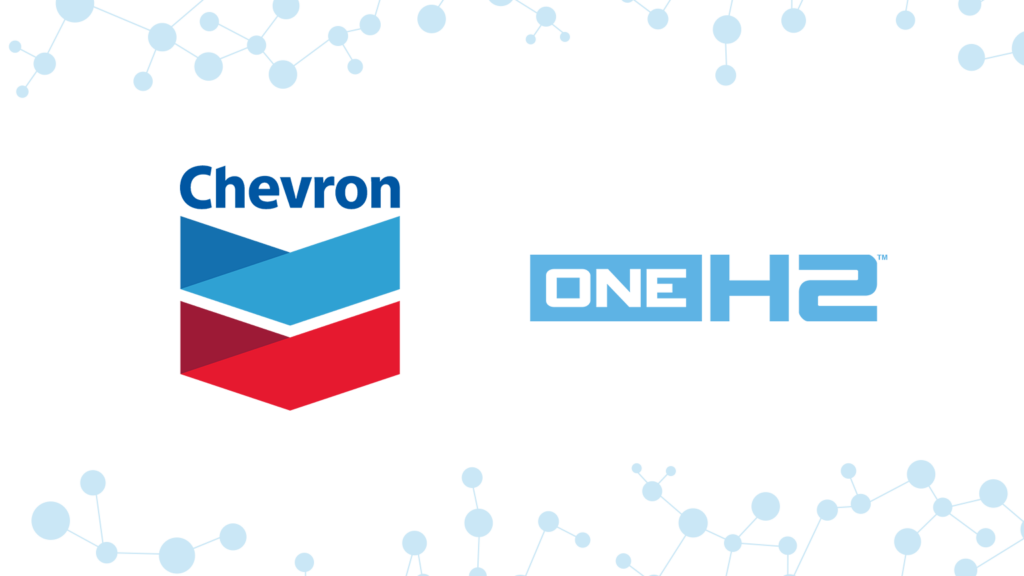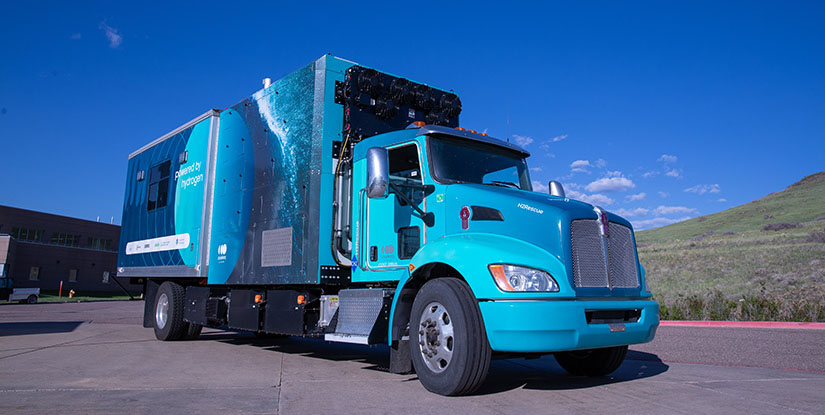Chevron, Trafigura, and Papé Group Close Investment in OneH2

Hydrogen distribution and fueling business OneH2 has closed its latest funding round with investments led by Chevron U.S.A. Inc. and current investors Trafigura and The Papé Group. Terms of the transactions were not disclosed. Funds from the round will be used to help accelerate the development and deployment of mid-scale hydrogen generators and fuel distribution […]
OneH2 Partners with Ampol to Expand Australia’s Hydrogen Market

OneH2 recently announced a partnership with Ampol, an Australian company that supplies the country’s largest branded petrol and convenience network. In this new partnership, Ampol will represent OneH2 in the Australian hydrogen market as part of the company’s initiative to expand its zero-emissions fueling options. Partnering with OneH2 will allow Ampol to offer a unique […]
The Impact of Hydrogen on Powered Industrial Vehicles

Today’s material handling operations require reliable fleets of powered industrial vehicles (PIVs). These fleets are usually powered by internal combustion engines (ICEs) or battery-electric vehicles (BEVs). Both of these options create several operational and logistical challenges. However, technological improvements in hydrogen fuel and fuel cells have created an alternative fuel source for PIVs. A recent […]
Swapnil Revankar wins the Excellence in Product Innovations Award

In recognition of his exceptional contributions to advancing OneH2 as a leading force in the hydrogen technology industry, Swapnil Revankar was honored with the Excellence in Product Innovations Award this month. Swapnil’s journey with OneH2 began as a Mechanical Design Engineer in September 2018. Through his unwavering dedication, motivation, and inventive mindset, he has risen […]
International Hydrogen Initiatives

As countries worldwide seek to lower their carbon emissions, many public and private initiatives are underway to expand the use of hydrogen fuel. Because it creates zero carbon emissions at the tailpipe and offers greater efficiency and operational benefits than many battery-electric alternatives, hydrogen fuel is a viable solution for many countries’ sustainability efforts. To […]
Powering Emergency Relief Vehicles with Hydrogen

Recently, the U.S. Department of Energy and the U.S. Departments of Defense and Homeland Security partnered with Accelera by Cummins Inc. to develop a hydrogen-powered emergency relief vehicle. The result is H2 Rescue, a Class 7 truck that runs on hydrogen fuel cells and serves as a mobile generator that can power up to 20 […]
A Brief History of Hydrogen Safety

Hydrogen fuel has been used for industrial purposes for over 100 years (Rivkin et al., 2015). Prior to that, hydrogen has been a known material for an additional 100 years. Thus, the features of hydrogen have been widely studied and are well-known to researchers and developers of new fueling technology. According to the U.S. Department […]
Benefits of Delivered Hydrogen

For businesses looking to transition to hydrogen fuel, our delivered hydrogen solution can be a beneficial option. It can supplement on-site hydrogen generation or provide hydrogen fuel for operations that don’t generate their own. Hydrogen is delivered ready to fuel, with no additional compression needed. Delivered hydrogen offers multiple benefits including flexibility, affordability, and safety. […]
The Changing Landscape of Emissions Regulations

As federal, state, and local governments look for ways to decrease carbon emissions, new regulations on air quality, emissions, and fuel sources are changing the way many industries operate. Many fleets once powered by diesel or gasoline fuels will need to transition to a low- or zero-emissions alternative in the coming years. Navigating this process […]
Study Shows Hydrogen Fuel Cell Forklifts Reduce Maintenance Costs

Recently, The United States Postal Service (USPS) implemented a pilot project to determine the operational and financial impacts of switching its powered industrial vehicles (PIVs) from lead-acid batteries to hydrogen fuel cells. PIVs used included forklifts, tow motors, and pallet jacks. The battery systems negatively impacted productivity due to their extended charging times, short lifespan, […]